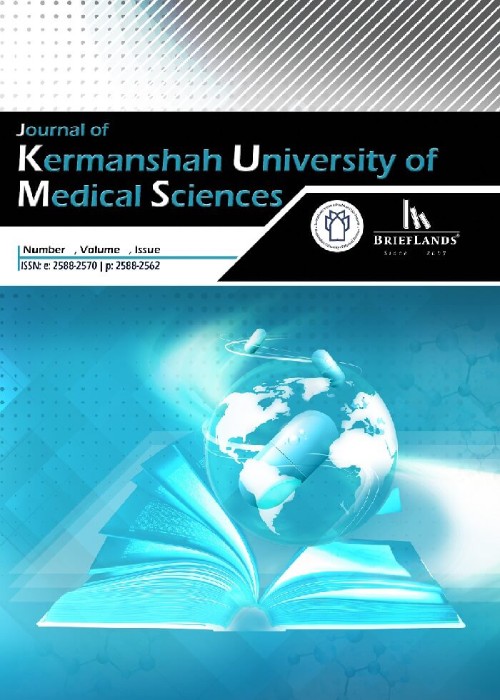Application of ozonation process for the removal of Legionella pneumophila from water
Author(s):
Abstract:
Background
Legionella pneumophila mortality and morbidity is a health concern worldwide. Due to the role of water in transmission of Legionenlla، several techniques have been used for water disinfection. This research was aimed to analyze the efficacy of ozonation process and the effects of bacterial density، contact time and pH on the removal of Legionella pneumophila from water. Methods
Legionella pneumophila was isolated from hospital water line and spiked into sterile drinking water with 300، 700 and 1000 CFU/ml densities. Ozonation was conducted within 1 L batch glass reactor with injection of 5 mg/h and contact time of 5 to 30 minutes at pH = 5، 7 and 9. Legionella culture was performed in supplemented BCYE containing GVPC and thermal treatment. After ozonation، the developed colonies were identified via biochemical and morphological tests. Results
In pH =5، the contact time 25 min and pH= 7 as well as the contact time 30 min، increase of legionella density from 300 to 1000 CFU/ml led to the reduction of removal efficiency from 100 to 87% and 100 to 82%، respectively. In pH=9 and contact time 20 min with the same bacterial density، 300 to 1000 CFU/ml، the disinfection efficacy was decreased from 100 to 91. 5 %. Conclusion
Ozonation is an appropriate technique for elimination of legionella from water. The increased bacterial density led to the reduction of removal efficiency. The lowest and highest performance rates were obtained in pH=7 and 9، respectively.Keywords:
Language:
Persian
Published:
Journal of Kermanshah University of Medical Sciences, Volume:19 Issue: 4, 2015
Pages:
197 to 206
https://magiran.com/p1446461


